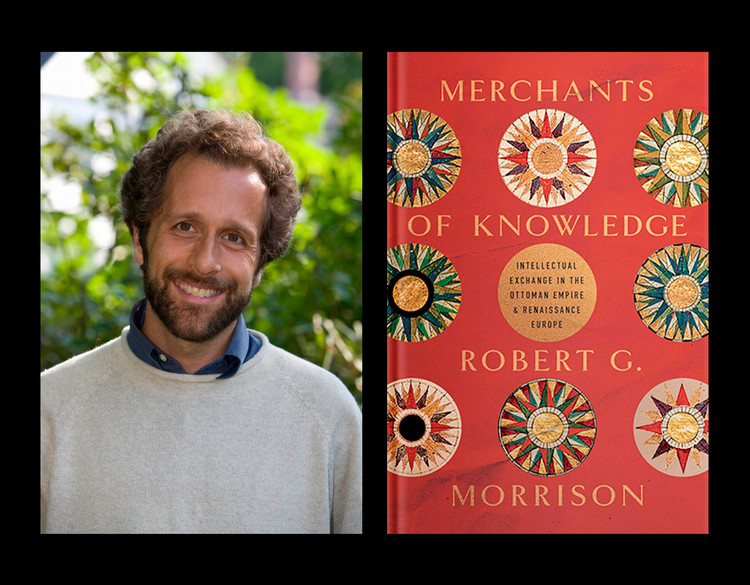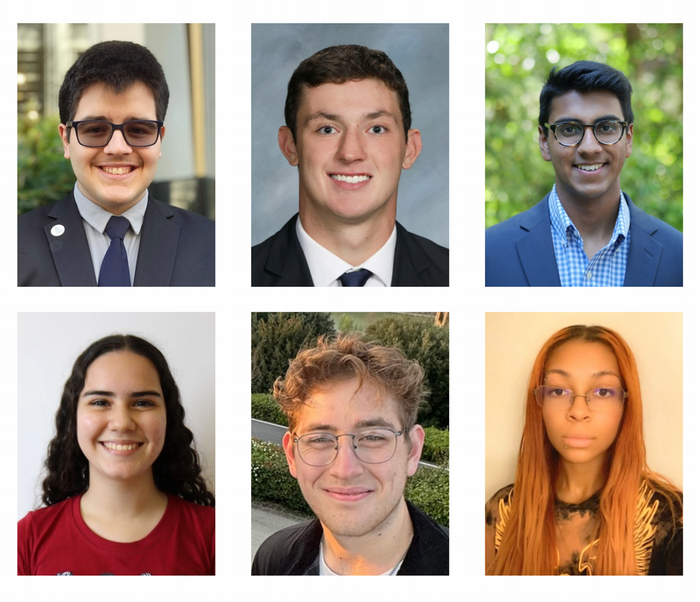Baccalaureate Student Address: Matthew Williams ’16
By BowdoinPlanting our seeds
Matthew Williams ’16
Baccalaureate 2016
President Rose, members of the College, and guests,
Good morning. I am honored to be standing before you today. On February 24th 2016, Bowdoin brought to campus R.J. Palacio the author of Wonder, a number-one New York Times bestseller. Being an aspiring author I decided to attended the event with a friend who was a huge fan of hers. As we walked into the venue I was astonished. There was not a seat to be had in the place, but the room was not filled with college students, but local middle and elementary school kids. Yes, she was the author of a children’s book. But we didn’t care. We proudly sat down among a crowd of 10 year olds and awaited the talk. Though much of the talk was geared toward the younger kids, there was something the author said during her presentation that stuck out to me. She said that her book was centered around precepts, little quotes or phrases that are intended to provoke a certain thought or action. After the talk I started thinking about the precepts that I have collected over the years that kept me motivated. I thought about maybe trying to squeeze all 47 of them into this eight-minute speech and somehow find a way to make them all work. And as fun as that would have been for me to write, and I’m sure for you all to listen to, I decided against it. Instead, there was one quote that spoke to me the most saying “A society grows great when old men plant trees whose shade they know they shall never sit in”(Greek Proverb). Though this quote can be debated for its accuracy, there is something about it that remains powerful nonetheless. Whenever I think about this quote, I think of myself holding a hand full of seeds that are waiting to be planted. I do not know what the seeds will become, if all of them will survive, but there’s a hope that one of the seeds I plant will grow into a mighty tree.
As I thought about the quote more I couldn’t help but think about my mother. Before I was leaving for college she told me she was proud. She said that though she never went to college, she would always consider herself successful because of the way she raised her kids. She said that she wanted to give her kids everything she never had but wanted. And so she did. As a single mother of two kids she worked to make sure her children had the best education. Though she had a pinched nerve in her back causing her tremendous pain, she worked through it in hope that she could give her kids all the resources we needed to be successful. She would always say that she may not be around to see us graduate or to see us have grandkids, but that she was okay with that because she knew she had laid the foundation we needed to become whatever we wanted to become. Her children were her seeds.
And though this seems like a great plan, to plant a mighty tree that will help future generations, in reality there is no scripted way of doing it. I imagine that it’s like any other vegetable or plant, you just dig the hole, drop the seed in and nature will do the rest, right? But as I was writing this speech I started thinking to myself, “Hey, self, how are you going to change the world when you want to get a degree in poetry. Out of all the things you could have been good at you went and had to like poetry, really.” Truth is, I have no clue as to what I am doing, where I am going, or how I am supposed get there, let alone do it with a degree in poetry. However, when I start to doubt myself I am drawn to a quote by J. M. Barrie, the author of Peter Pan, that said “The moment you doubt whether you can fly, you cease forever to be able to do it.”
But what happens to those brave enough, or stupid enough to follow their dreams? As I was thinking about what graduation would be like, I imagined graduation as this ominous ceremony where my fellow graduating seniors and I file across stage one by one, super excited and yet anxious, as if we were in Lowis Lowry’s novel The Giver and it was time for us to hear those five terrifyingly dreadful words, “Thank you for your childhood.” And after that, we are sent out into the quote-on-quote “real world” in which we now join the work force, abandon our childhood dreams and pursue practical ones, such as getting our first job that pay enough manage the bills. But just like Peter Pan, there was a part of me that never wanted to grow up, not because I was scared of being an adult, but because of the things we are forced to leave behind in our pursuit of becoming adults. In our pursuits of trying to nurture our dreams, our seeds, into reality. But most importantly, I started worrying about what happens if we fail. If we make mistakes, follow our dreams and struggle every single day. Well the answer came in an unexpected way from an unexpected source.
Recently I was watching a TV show called “Girl Meets World” on the Disney channel. Now normally this is the part of the speech where I will say I was watching it with my three-year-old niece so that it doesn’t seem like I watch the Disney channel for fun, but today I will proudly say that I love this show. There is this one episode where Riley Matthews, the main character of the show is trying out for the cheerleading team and she is terrible. Her friends beg her not to audition but every year she does it anyway. And though it is painstakingly hard to watch this girl humiliate herself time after time, her father keeps reading her a quote by Thomas Edison that says “I have not failed. I’ve just found 10,000 ways that won’t work.” She never doubted herself, and ultimately, though she was still a terrible cheerleader, she made the team because the team saw potential in her. She was a seed.
As I stand before your today, Class of 2016, I will guarantee as we start to follow our dreams and try our hands at being real adults that we as a collective body will find a lot more than 10,000 ways to fail. It is inevitable. I say all this to say, I wonder how many seeds we will need to plant in order for a tree to finally grow? It doesn’t matter if we succeed on our first try, or last—the key to our success comes in not being afraid to try. We may never rest under the shade of the trees we plant and that’s okay, it is having the courage to try in the first place that makes a difference. And so I leave you with this final quote, one by the famous Dr. Seuss that says, “Unless someone like you cares a whole awful lot, nothing is going to get better. It’s not.” As we leave this institution, let us strive to make a change around the things we care about. Follow our dreams, make mistakes and fail. Fail again. Fail one more time. Maybe fail a fourth time just for fun. Then finally succeed. Thank you.



